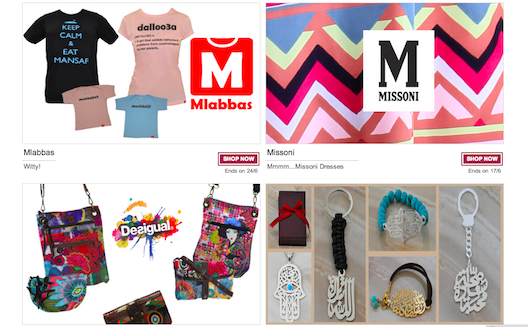Can Jordanian flash sales site Harir crack the Saudi market?


The hour of daily deals may be fading in the Arab world, but flash
sales is quick on its heels as the model of the moment.
Since the dawn of flash sales in the Middle East in 2010,
MarkaVIP and Sukar have led the sector, localizing the model
pioneered by French site Vente-privée in 2004: selling designer
clothing online, at large discounts, for a limited time.
Three years on, both sites are still growing; MarkaVIP, for one,
claimed to be on track in 2012 to reach US$ 100 million in sales,
although, “revenue alone doesn’t make a sustainable business,” COO
Sohrab Jahanbani points out. Sukar
was acquired by sister company Souq last year, in a bid to
boost its expansion by consolidating resources.
In 2013, a second generation of sites are cropping up, mostly
targeting the home goods vertical as One King’s Lane has the U.S.
Jordan’s
Wysada and Dubai’s Desado
both launched last December to offer a mix of furniture and design
items, and newcomer Harir is
carving out a space in the Jordanian fashion market.
Meet Harir
By offering a mix of brand name designers (like Juicy Couture and
Ralph Lauren) and local Jordanian talent, Harir hopes to lure in
customers looking for something unique. That’s what all of the
design-focused flash sales sites say, but Harir is the only one to
offer quirky local t-shirt companies like the excellent Mlabbas.
The site’s founding story is simple enough: brother and sister team
Mousa and Hanae Ayoubi were living abroad when they saw the
astronomical rise of flash sales in the U.S. and Europe. After
quitting their respective jobs at Ernst and Young and AT Kearney,
they returned to Jordan hoping to make a dent as entrepreneurs.
Harir, like any startup, is a work in progress, the founders
admit. While 50% of the site’s purchases are local products, it’s
still the international brands that lure most buyers in, they
confess. However, local brands lower their price points, making the
site more in tune with the local market, says Hanae.
By gaining buyers’ trust with good customer experience, the
founders hope to boost the popularity of local items. “I see people
come in to the site looking at Juicy Couture, and then browse Naqsh
(a Jordanian home and fashion accessories designer),” she says.
Since November, the site has gained 8,000 members, with 80% of
transactions paid for with cash-on-delivery (COD), 10% via PayPal,
and 10% over Moneybookers. As it builds, the Harir team will
continue to experiment until they discover what sticks. “We bring
design items from abroad, just to mix it up, as well as home
accessories,” says Hanae.
“And a bit of electronics,” Mousa chimes in.
Expanding into Saudi
Six months after its launch, the company has now made the leap to
open shipping in Saudi Arabia.
As any e-commerce company can tell you, that means opening a
(necessary) can of worms. With high return rates and a tough local
warehousing market, the region’s second-largest market,
valued at $520 million, doesn’t come easily.
At Harir, which is fully self-funded, it’s still early days; the
company plans to continue fulfilling orders from its warehouse in
Jordan, and then bundle returns from Saudi at a local Aramex
facility before shipment, to reduce return costs. Once the founders
raise a round of investment, they’ll look to warehouse in Dubai or
Riyadh.
By closely monitoring customers, they hope to reduce returns,
which, have only been 5% of orders in Jordan, they say.
By betting on Saudi rather than setting up in Dubai first, Harir
may be the first flash sales e-commerce site to take this
route.
Yet the founders are hoping to see larger transactions in the new
market, and they staunchly believe that there’s no reason a niche
flash sales site won’t succeed, given the model’s success. “It’s
one of the hottest sectors in the U.S. and Europe,” says Mousa.
"It’s not a matter of when, but of how fast the Arab World will
join the rest of the world in buying online," Hanae adds.
And yet, the experiment has just begun. Will Mlabbas lovers really
take to online shopping over browsing their new Rainbow Street
outlet? Will Saudi buyers take to local Jordanian designers?
And will an offline store make sense one day? Riyadh-based
retail concept Velvetty is
doing just fine without an e-commerce site, says founder Sinan
Khatib. U.S. design site Fab has
pivoted away from flash sales and into brick-and-mortar outlets
selling home goods. Will an e-commerce site in the Middle East
follow suit?
Ola Doudin contirbuted reporting to this article.


